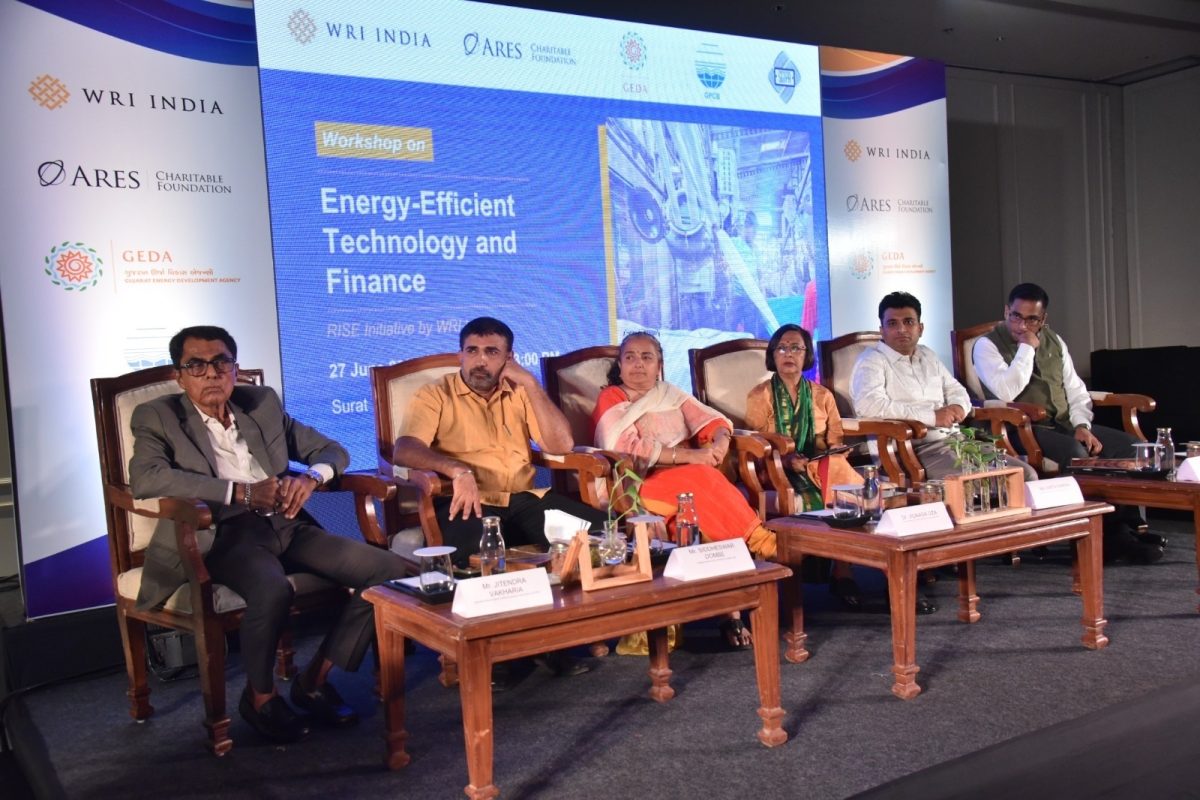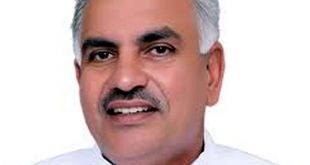
Surat, June 27 (HS). In a workshop organized to motivate Surat's textile entrepreneurs towards environmentally friendly and economical energy use, Surat's textile entrepreneurs were appealed to play a role in achieving the country's net zero target by 2070.
On the occasion of 'International MSME Day', Subrata Chakraborty, Associate Program Director, Climate Branch, WRI, said in a workshop on 'Energy-Efficient Technology and Finance' organized at a hotel in Surat on Thursday that industries and MSME units in India and the whole world are facing the threat of bad consequences of climate change. Accordingly, work is being done to make the use of low carbon emission technologies common in MSME units. At the same time, efforts are underway to provide financial assistance to achieve India's climate goals and to make India a net-zero nation by the year 2070.
The workshop was organized by WRI India under the RISE (Resilient, Inclusive and Sustainable Enterprises) Surat initiative in collaboration with Climate Resilient Employees for a Sustainable Tomorrow (CREST) of Aries Charitable Foundation. The workshop was attended by over 112 stakeholders from textiles including representatives of MSMEs, policy makers, energy efficiency technology providers and funding agencies. The workshop mainly focused on the adoption of energy-efficient technologies and financial support required for sustainable transformation of MSMEs.
Amita Pandya, Senior Project Officer, JEDA, outlined efforts to support the adoption of energy-efficient technologies in industrial units across Gujarat. “We are in talks with financial institutions like Small Industries Development Bank of India (SIDBI) to provide interest subsidy to textile MSMEs adopting energy-efficient technologies,” she said.
Siddeshwar Dombe, Assistant Director in the Ministry of Textiles, referring to the significant contribution of MSMEs in Surat's textile production sector, said, “The use of new technology in weaving and processing of cloth reduces costs and makes those MSME units eligible to avail the benefits of various schemes of the government. Apart from this, upgradation of capacity is also beneficial for both MSME owners and workers.”
Dr Jignasa Ojha, Regional Officer, Gujarat Pollution Control Board (GPCB), Surat, underlined the importance of sustainable development of MSMEs. She said, “MSMEs have a significant contribution in the economic development of the country. New technologies and financing opportunities are very important for their sustainable development. The aim of this workshop is to connect government agencies, MSMEs and providers of energy-efficient technologies and financial support.”
SGTPA President Jitendra Vakharia mentioned the sustainable development of MSMEs in Surat's industrial sector. He said, “MSMEs contribute more than 80 percent to the progress of Surat's industrial sector. The textile sector plays a very important role in the city's development. Central and state governments as well as agencies like JEDA and GPCB have also contributed to this development.”
Bureau of Energy Efficiency expert Ajit Upadhyay said, “Gujarat has the highest contribution in the production of woven fibers. Gujarat has a share of 60 to 70 percent in the production of denim fabric made in the country. In this case, it ranks first in the country and third in the world.” The workshop also emphasized the need to make the textile industry sector environmentally friendly to help India achieve the goal of net-zero by the year 2070.
 look news india
look news india
